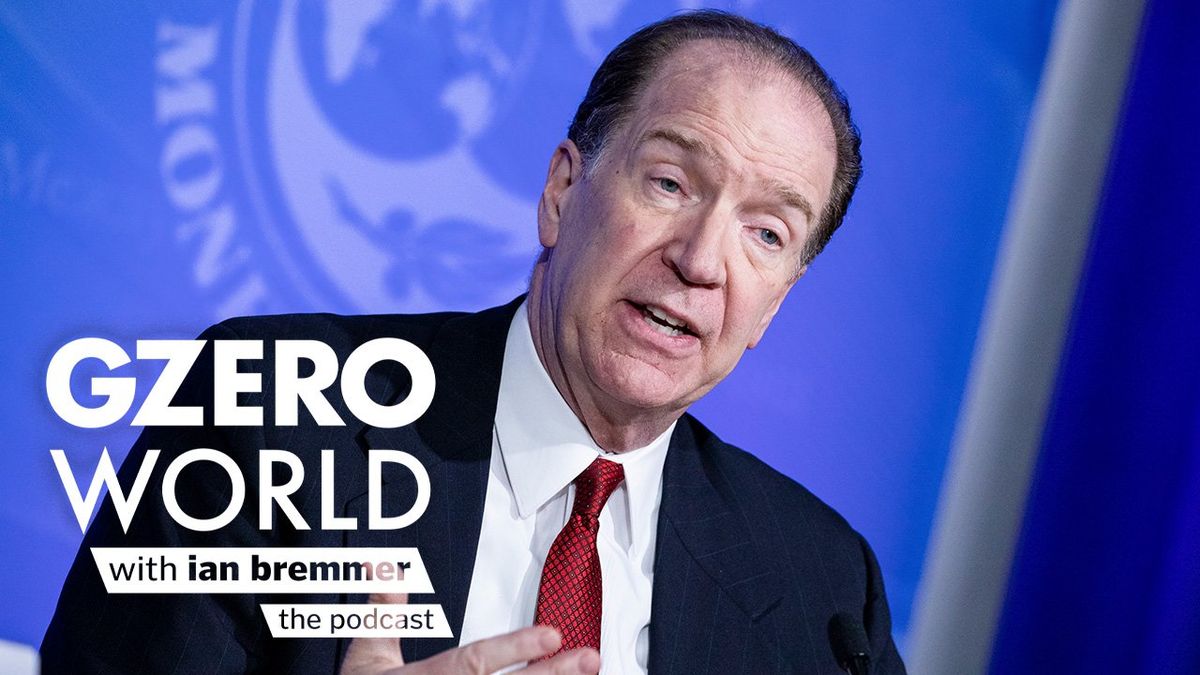Listen: In his final interview as World Bank president, David Malpass sits down with Ian Bremmer on the GZERO World podcast to discuss all things debt. No, not your credit card or mortgage payments, but the sovereign debt that governments use to pay their bills.
Global debt has ballooned to an eye-watering $300 trillion due to decades of low interest that made borrowing money extremely cheap, followed by runaway inflation driven by the pandemic and war in Ukraine. This dynamic has forced a lot of nations––particularly the poorest––to borrow more money than it can pay back.
In a wide-ranging interview, Malpass explains how the global debt crisis got so bad and whether there's any hope of averting economic disaster before it's too late. He also reflects on his tenure as World Bank president, advice for his successor, China's emergence in the 21st century as the world's creditor, and why the US debt limit law needs to be rewritten.
Subscribe to the GZERO World Podcast on Apple Podcasts, Spotify, Stitcher, or your preferred podcast platform, to receive new episodes as soon as they're published.- Odds of a global recession? 50/50, says David Malpass ›
- Explaining the long history of US debt (& which other countries are saddled with debt) ›
- US debt default would be "destabilizing," says World Bank's David Malpass ›
- World faces "lost decade" of economic growth, says World Bank economist ›
- Inequality isn't inevitable - if global communities cooperate ›
- Graphic Truth: Global inequality ›
- Debt limits of rich countries hurt poor countries' growth, says World Bank's Malpass - GZERO Media ›
- Ian Explains: Why is global debt so high? - GZERO Media ›
- World Bank economist: The poorest are getting poorer globally - GZERO Media ›






